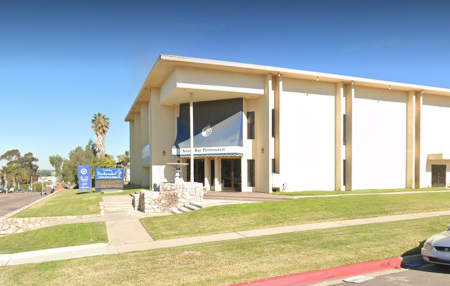Supreme Court rejects Calif. church’s request to lift limits on in-person services ahead of Pentecost Sunday

In a late-night 5-4 decision Friday, the Supreme Court rejected a California church’s request to set aside Gov. Gavin Newsom’s recently issued public-health guidelines that allow congregations to meet in person but limits attendance to 25% of the building’s capacity, with a maximum of 100 attendees.
In the decision released just before midnight, days before Pentecost Sunday, Chief Justice John G. Roberts joined the court’s four liberal justices — Ruth Bader Ginsburg, Stephen Breyer, Sonia Sotomayor and Elena Kagan — in rejecting the request by South Bay United Pentecostal Church and its Senior Pastor Bishop Arthur Hodges III, and upheld the state’s rules, The Wall Street Journal reports.
Newsom announced Monday he would allow in-person worship services in California, but capped religious gatherings at 25% or no more than 100 people in attendance, irrespective of the size of the church or other contagion-related variables.
South Bay United Pentecostal Church draws 200-300 congregants.
The petition, filed on behalf of the church by legal firms Thomas More Society and LiMandri & Jonna, argued that the First Amendment’s guarantee that all Americans enjoy the fundamental right to freely exercise their religion protects churchgoers against being “singled out” to suffer “biased, discriminatory restrictions” not enforced against any other gatherings.
However, Roberts wrote, “The precise question of when restrictions on particular social activities should be lifted during the pandemic is a dynamic and fact-intensive matter subject to reasonable disagreement. Our Constitution principally entrusts ‘the safety and the health of the people’ to the politically accountable officials of the states ‘to guard and protect.’”
The chief justice added that the state’s executive order “aims to limit the spread of Covid-19, a novel severe acute respiratory illness that has killed thousands of people in California and more than 100,000 nationwide. At this time, there is no known cure, no effective treatment, and no vaccine.” Roberts added that asymptomatic carriers “may unwittingly infect others.”
Justice Brett Kavanaugh wrote in dissent that the restriction, “… discriminates against places of worship and in favor of comparable secular businesses. Such discrimination violates the First Amendment.”
Kavanaugh noted that supermarkets, restaurants, hair salons, cannabis dispensaries, and other businesses are not being subjected to the same restrictions. Justices Clarence Thomas and Neil Gorsuch joined the dissent.
Attorney Charles LiMandri, serving as special counsel to the Thomas More Society, responded to the late-night ruling, saying they will, “proceed with our expedited appeal in the Ninth Circuit and, if necessary, seek a decision from the U.S. Supreme Court on the merits under a much more favorable standard."
He added, “Although this interim ruling is disappointing, it’s clear to us that, without the filing and vigorous litigation of this lawsuit, churches would still be closed in California under Governor Newsom’s original shut-down orders.”
Russell Moore, president of the Southern Baptist Convention’s Ethics & Religious Liberty Commission, said he wished the court had “acted to bring more constitutional clarity to this pressing question.”
“There is no dispute that the government has a compelling interest in restricting assemblies during times of pandemic, but several states, including Minnesota, California and Nevada, have pursued policies that are inconsistent, incoherent and not neutral toward religious gatherings as opposed to non-religious gatherings,” Moore said in a statement on Saturday.
“Chief Justice Roberts is correct to say that a large gathering of people is not the same as a small business where people can socially distance one by one. And yet, in many states, that's not where the distinction is being made. In some places, casinos are open while houses of worship are not. That is not sound public policy, and it sets a bad precedent," Moore added.
Tom Brejcha, president and chief counsel for the Thomas More Society, said before the decision that this case “is about essential and fundamental freedoms that are enshrined in our First Amendment, at the very summit of our Bill of Rights.”
Brejcha argued that “This cap on church attendees that is not enforced against any other human activities or gatherings in San Diego or throughout California is odious and abhorrent, devoid of the slightest justification as applied only to religious practice.
“This bias against people of faith betrays the falsity of proclamations that ‘churches are now open,’ as government officials seem to deem religious congregants and their shepherds alone as unworthy of trust, while opening up manufacturing and retail stores without any comparable caps on attendance. ..."
Last week, before Newsom’s announcement about the opening up of churches, the U.S. 9th Circuit Court of Appeals ruled 2-1 to uphold the state’s ban on in-person worship services.
The judges wrote, “We’re dealing here with a highly contagious and often fatal disease for which there presently is no known cure. In the words of Justice Robert Jackson, if a ‘[c]ourt does not temper its doctrinaire logic with a little practical wisdom, it will convert the constitutional Bill of Rights into a suicide pact.’”
Last Saturday, the church took the case to the Supreme Court. After Newsom’s announcement, the church filed a supplemental brief Tuesday.





















